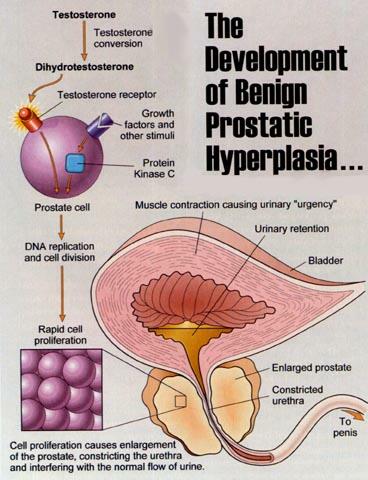What is Benign Prostate Enlargement?
Benign enlargement of the prostate (BEP) is a common condition, where the Prostate gland swells beyond its normal size. It is also known as benign prostatic hyperplasia. It is not a cancer, although it still requires treatment.
The prostate gland is only found in men. The size of a walnut, it lies immediately below the bladder. A tube called the urethra, which carries urine from your bladder, passes through the center of the prostate gland.
An enlarged prostate can press on the urethra, which causes narrowing or blockage of the tube and prevents your urine from flowing normally.
Causes and risk factors
After the age of 45, you are more likely to develop an enlarged prostate, and your risk increases as you age. Around one-third of men older than 50 have an enlarged prostate. By age 85, this increases to around 90 percent.
Research has suggested that prostate enlargement could result from hormonal changes occurring in men as they age.
What are the Symptoms?
If your prostate becomes enlarged, you may experience some of the following symptoms, which tend to worsen as time goes on:
- a need to pass urine more often
- an increased need to urinate during the night
- finding it difficult to start urinating
- having a flow of urine that is weak and stops and starts
- feeling you have to strain to produce urine
- feeling as if your bladder has not emptied properly after urinating
- urine continues to dribble out after you have finished urinating
You may also experience complications from enlarged prostate, such as a urinary tract infection. You could also develop bladder or kidney stones.
Not everyone experiences symptoms, and any that appear do not seem to be related to the size of your prostate gland.
Treatment Options for Benign Prostate Enlargement
Lifestyle Adjustment
If your symptoms are mild, you may not need medical treatment. You might be able to manage your condition with lifestyle changes, such as restricting fluid intake at night and reducing alcohol and caffeine consumption. Your doctor will monitor your prostate at regular intervals.
Medication
Drugs are the most frequently used treatment when your symptoms are moderate. You may be given alpha-blockers to relax the muscles in your prostate, or drugs known as 5-alpha-reductase inhibitors, which alter your hormone balance, and encourage the prostate to reduce in size. Patients often take both types of medication.
Surgery
If your prostate does not respond to drug treatment, or if it is quite large, surgery may be necessary to remove the enlarged portion of the gland. The most common operation is known as TURP, which stands for transurethral resection of the prostate. As with the cystoscopy, a long, thin instrument with a camera is inserted up the urethra to reach your prostate, where the enlarged tissues are removed using an electrical loop. The loop not only cuts, but also cauterizes the blood vessels to control bleeding.
Another type of surgery is the TUIP (transurethral incision of the prostate) procedure. TUIP widens the urethra to allow for stronger urine flow. What is called an “open” surgery requires an external incision to reach the prostate. This procedure is only used under more severe circumstances.
Other Options
Non-surgical techniques use microwaves, radio waves, or lasers to remove the enlarged prostate tissue. These may cause fewer side effects, but are not as proven as conventional methods for long-term effectiveness.
Dr. Abhijit Phadiya
Urology & Andrology Consultant
Bahrain Specialist Hospital
Email: abhijit.phadiya@bsh.com.bh

